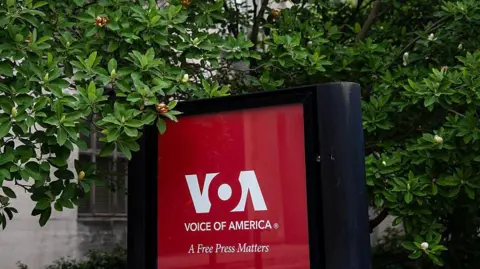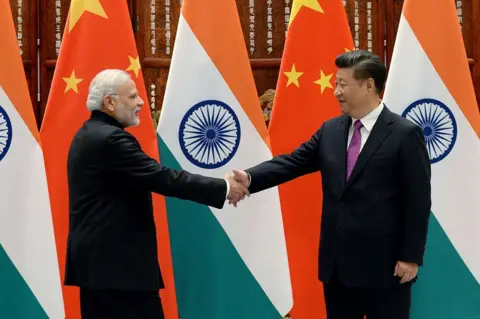"Unfair to lift censorship suddenly," grumbled a seasoned newspaper editor into the phone, referring to the abrupt censorship imposed during the Emergency in India. This bitter sentiment was immortalized in a cartoon by Abu Abraham, a maestro of political commentary whose artistry highlighted the media's compromises under Indira Gandhi's governmental oppression.
On June 25, 1975, India's press freedom faced a harsh blow, with censorship quickly taking hold. In a matter of hours, printers were rendered silent and news outlets became mouthpieces for the regime. Many editors, as noted by opposition leader LK Advani, opted for compliance rather than resistance. Abraham's work during this period poignantly illustrated the absurdity of the situation; one of his notable cartoons features a dismayed individual remarking, "What do you think of editors who are more loyal than the censor?"
Fast forward to the present, and the core of his work resonates still: India ranks 151st on the World Press Freedom Index, intensifying concerns about journalistic independence in the age of Prime Minister Narendra Modi's administration. Critics cite excessive pressure on newsrooms and growing violence against journalists as signs of a floundering free press. Meanwhile, government representatives counter these critiques, asserting the media's robustness.
Returning to India post a 15-year stint in London where he drew for prominent publications like The Observer, Abu found himself navigating a politically charged landscape. His observations during the Emergency were critical; censorship appeared briefly, lifted then reinstated, and remained a specter as he freely expressed his views thereafter, often citing ignorance of his unchallenged position.
One of the most striking images Abu produced during the Emergency depicts then-President Fakhruddin Ali Ahmed authorizing the Emergency decree while in a bathtub, reflecting the nonchalance with which the declaration was delivered. Many of his cartoons bore the stark inscription "Not passed by censors," a mark of resistance against the silencing of dissent.
His work didn't shy away from mocking the absurdities of state propaganda. For example, a character in one cartoon held a placard that read "Smile!", poking fun at governmental attempts to enforce a veneer of cheerfulness amid harsh realities, to which another character quips about their "lovely censor of humour."
Abu's wit extended to critiques of influential figures such as Sanjay Gandhi, deemed the force behind a shadow government amid the Emergency's turmoil. His incisive commentary transcended simple caricature; it embodied a profound understanding of the political landscape. "Politics is simply anything that is controversial," he once remarked, expressing his belief that all aspects of life are interwoven with political narratives.
Born in Kerala in 1924, Abu's journey in journalism began with the Bombay Chronicle at a momentous time in India's fight for independence. Throughout his career, he championed the truth while navigating various publication platforms, often addressing the relationship between media, politics, and public perception.
His tenure at The Observer was marked by creative freedom, as editor David Astor recognized the unique quality of Abu’s work, free from maliciousness yet rich in satire. It was during this period that he adopted the pen name "Abu," a choice made to sidestep bias associated with his ethnic identity in Europe.
Abu’s corpus of work, evidenced by the election of 1977 that ended the Emergency, continued to thrive in various formats, including the enduring comic strip Salt and Pepper. Even in his later years, he maintained his commitment to satire that reflected societal realities. Despite his passing in 2002, his reflections on humor and authority remain relevant; he once noted the intricacies of laughter and reality, revealing deeper societal truths.
Ultimately, Abu Abraham's legacy transcends mere cartoons—a testament to the power of satire in challenging authoritarianism, illustrating how humor and politics can converge to promote reflection and foster dialogue. "When we have such innocents abroad, we don’t really need humorists," he quipped, blending wit with wisdom.






















